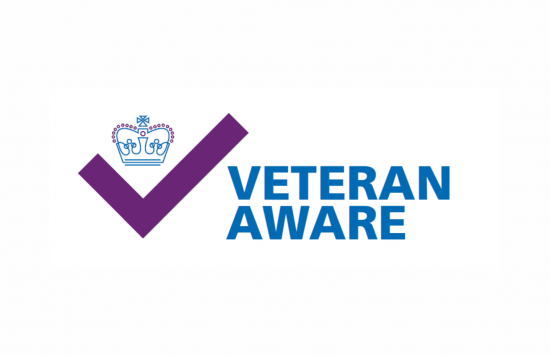The Trust Veterans' Alliance would like to introduce Ryan Knight as our new Veterans’ Champion. Ryan is employed by ELFT to ensure that the Veterans’ Voice remains central to all our work going forward.
Jane Kelly, Clinical Lead for Veterans:
"It is a real honour to have Ryan on board and his experience and passion for Veterans care is inspirational. We hope to build on these new posts to ensure our Veterans and their families have a positive experience working in the NHS and are given the right opportunities to contribute to the NHS Long Term Plan.
Cpl Ryan Knight (v) RAMC:
"I have joined the ELFT team with my assistance dog Byron as a Veterans Champion. Since my medical discharge from the Armed Forces, I have dedicated my time and energy into supporting and advocating for veteran care. I am extremely passionate about my new role and look forward to supporting our future works.
Ryan’s Story

Ryan joined the Army as a boy soldier at the age of 16. Ryan travelled the world, undertook various operational tours and thoroughly enjoyed his career as a combat medic until this was cut short when he was seriously injured in Afghanistan.
“Our platoon was on a routine patrol in southern Afghanistan. I was the commander of a vehicle containing three others. Early that morning, the weather was hot, dry and sunny. We were on our way back from a long patrol, I recall travelling down a dirt track which was very uneven, potholed and rocky. It had irrigation ditches each side of our convoy and I can remember seeing compounds beyond open ground.
The vehicle in front of us was about 40 metres ahead, and we were moving quite slowly due to the terrain. There was no radio chatter, everything was quiet and we were travelling in a straight line. Then out of nowhere BANG!
I opened my eyes and looked up at the sky. My ears were ringing, and I realised I was lying on my back on a dirt track. I couldn’t feel my legs, and my vehicle was on its roof. The smell was awful, a musty burning smell – like the smell of burning rubber on tarmac. I could see lots of grey smoke.
I couldn’t hear an awful lot, as all my ears were doing was ringing, like they had their very own pulse. Although I had been wearing body armour and a helmet prior to the explosion I realised I was no longer wearing my protective equipment, it had been blown off me with the force.
I couldn’t see any of my crew; my gunner, my driver, my interpreter were all amongst this thick smoke. I started to hear my good friend of mine shouting at me, asking me if I was ok. His vehicle was behind mine in the patrol, I could hear him frantically relaying information to the Platoon Commander, taking control of the situation. I can’t remember what he asked me, but then he disappeared again. I was left lying on my back.
I was the only medic on patrol, it left the responsibilities on my comrades to stabilise the casualties. This was particularly hard for myself to deal with laying hopeless in the ditch, as this was my role, trained to look after my comrades and not the other way around. Another 5-10 minutes had passed, I could hear the guys were on the ground working on the vehicle, I was left to one side as the extraction was put in place.
I was then placed on a stretcher and started to hear some screaming from nearby. I kept asking who it was, who was screaming. It gave me a glimmer of hope that my comrades were alive. Finally, I heard the relieving sound of the Chinook helicopter landing and I was put on to the back of the aircraft and flown out to the hospital.
My next recollection is waking up in the field hospital the Doctor telling me I was stabilised, ready to be flown back to the UK. I kept asking about the welfare of my crew; however none of the medical staff would let me know. I was later informed that I was the sole survivor. This left me devastated and I cried, I cried until I couldn’t cry anymore. I laid in my hospital bed unable to move and wondered why me, why am I still here? Is this really happening?
I woke up in a UK hospital ward 14 hours later, eager to see my family and now wife Olivia. I underwent several surgeries and had suffered life changing injuries. I spent the next 12 months undergoing both physical and phycological rehabilitation.
Some days I would simply sit there for hours with a blank expression on my face. Amongst my physical injuries I was subsequently diagnosed with complex Post Traumatic Stress Disorder (PTSD).
For years to come I found it very hard to open up and talk to strangers about my incident but now I am trying to use my experience to help others.

